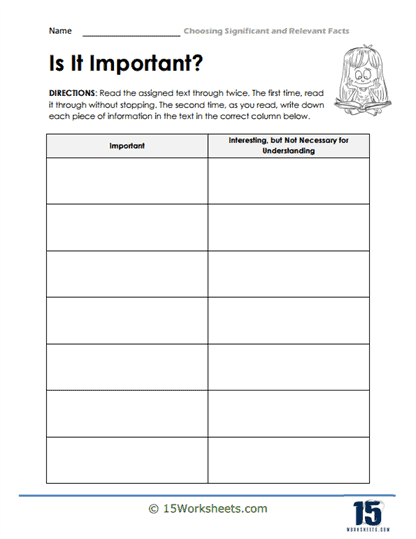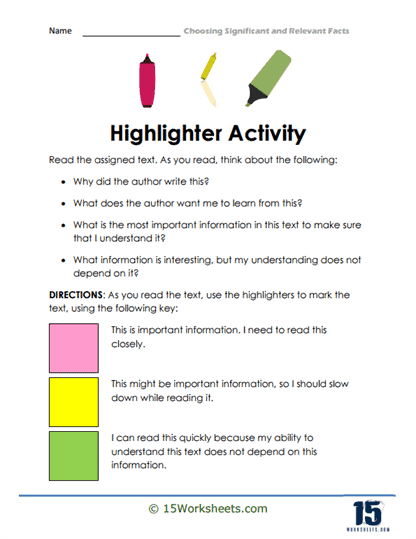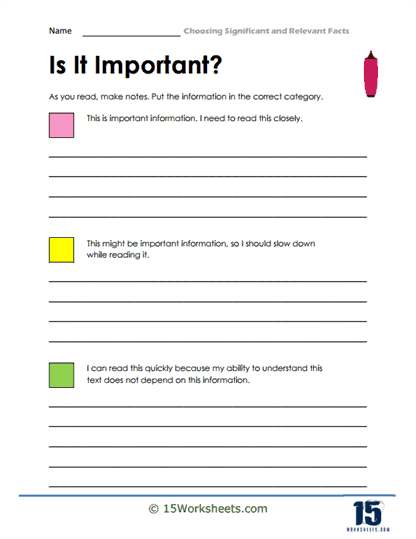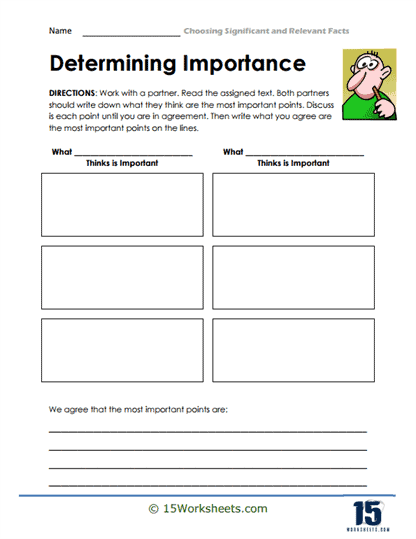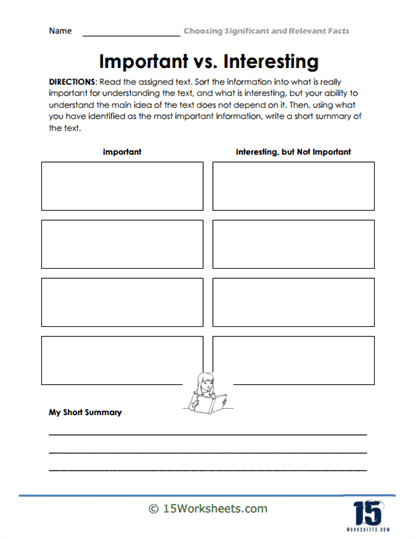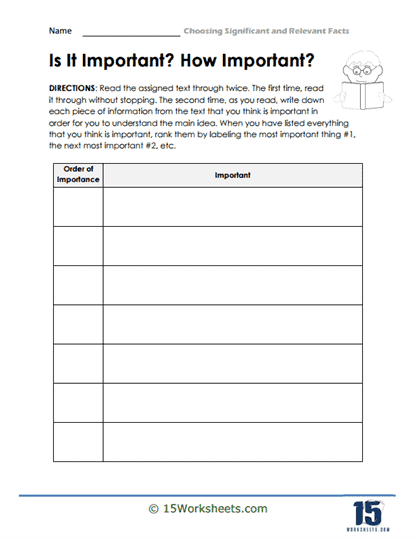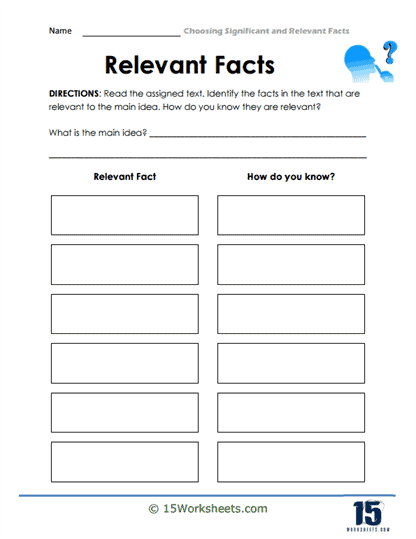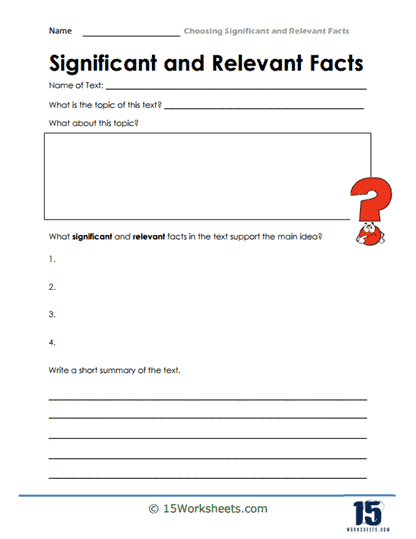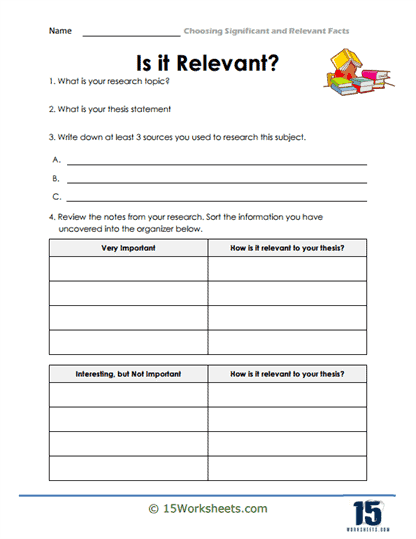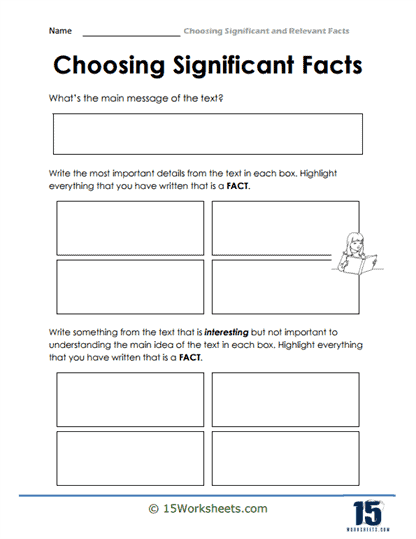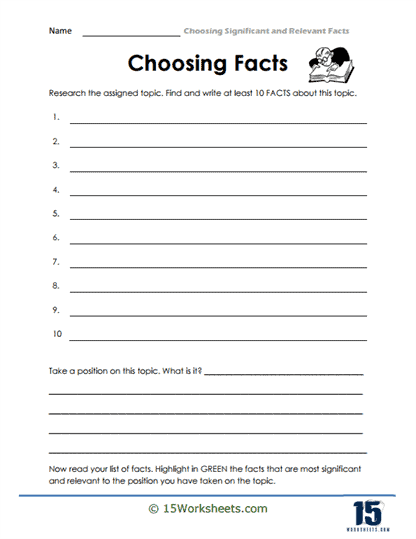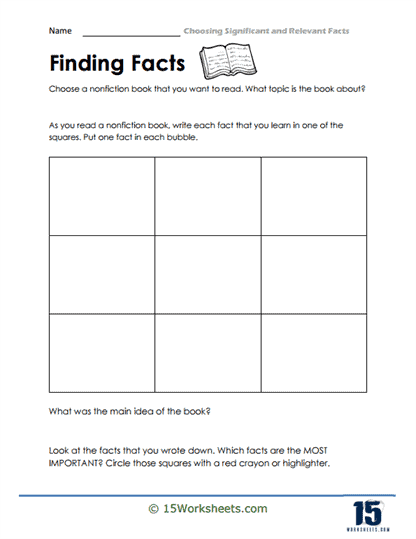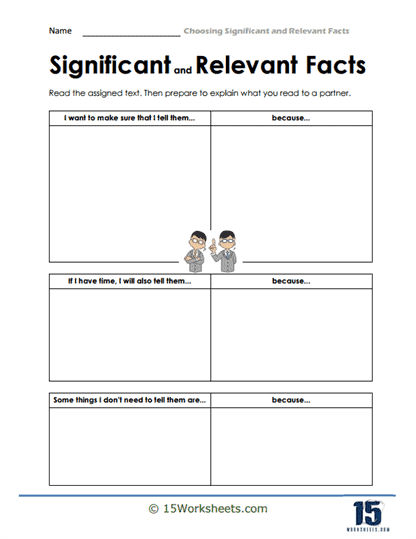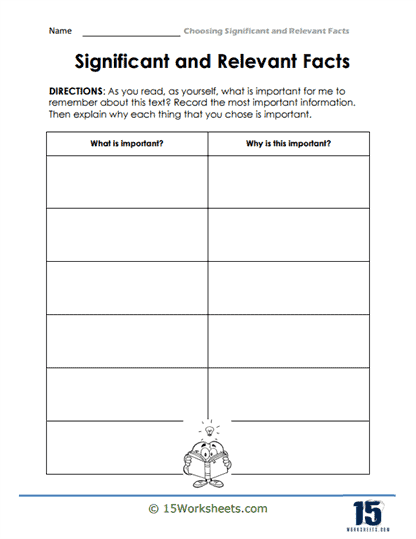Choosing Facts Worksheets
All About These 15 Worksheets
Empower your students to become skilled fact finders with this series of 15 worksheets designed to develop their abilities to choose relevant and accurate facts for their writing. Each worksheet provides students with guided exercises and critical thinking prompts to help them identify, evaluate, and select appropriate facts to support their ideas effectively.
This series caters to students across different grade levels, offering a range of worksheets that cover various aspects of fact selection. Through these worksheets, students will:
- Develop an appreciation for the significance of accurate and reliable information;
- Critically analyze sources and make informed decisions about the credibility of the facts they present;
- Learn to discern between general information and specific details that enhance the strength of their arguments;
- Learn strategies for cross-referencing facts across multiple sources and confirming their accuracy;
- And prioritize primary sources for firsthand information and use secondary sources for additional context and analysis.
Overall, this series of worksheets serves as a valuable resource for teachers seeking to enhance their students’ research and critical thinking skills. By engaging with these worksheets, students develop the abilities to choose relevant and accurate facts, evaluate source credibility, and strengthen their arguments with compelling evidence, empowering them to become discerning researchers and effective writers.
How to Choose the Best Facts to Support Your Argument
Choosing the best facts to support your argument is crucial to making a convincing case. Here are some steps you can take to help you choose the best facts:
Define your argument
Start by clearly defining your argument. What point are you trying to make? What are you trying to convince your audience of?
Identify your Audience
Consider who your audience is and what they might find persuasive. What kinds of evidence or facts would be most convincing to them?
Conduct Research
Gather information from reputable sources to support your argument. Look for evidence that directly relates to your argument.
Evaluate the reliability of the sources you are using. Are they reputable? Are they biased in any way? Are they up-to-date?
Choose the facts that are most relevant to your argument. Avoid using irrelevant or tangential facts that don’t directly support your argument.
Use statistics and data to help support your argument. This can help make your argument more concrete and persuasive.
Use real-life examples to help illustrate your point. This can help make your argument more relatable and understandable.
Consider the counterarguments to your argument and choose facts that can help refute them.
Overall, the best facts to support your argument are those that are relevant, reliable, and persuasive to your specific audience. By taking the time to carefully select and present your evidence, you can make a compelling case for your argument.

